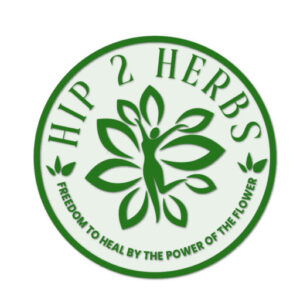Herbal Contraindications: What to Know Before Using Herbs with Pharmaceuticals

With the rise of natural health products and herbal supplements, many people are turning to plants for wellness and healing. Herbs can be powerful allies, but they also carry risks when combined with certain pharmaceuticals. Understanding herbal contraindications — or situations where certain herbs should not be used due to potential adverse effects or interactions — is essential for ensuring safe, effective treatment.
Why Herbal Contraindications Matter
Herbal contraindications occur when the effects of an herb conflict with existing health conditions or medications. Because herbs can affect the same pathways in the body as pharmaceuticals, they may enhance, reduce, or even change the way drugs are absorbed, metabolized, and eliminated. For example, St. John’s Wort, a popular herb for mood support, can significantly reduce the effectiveness of medications like birth control pills and blood thinners by speeding up liver metabolism. In contrast, licorice root, often used for digestive issues, can raise blood pressure and interfere with blood pressure medications.
Key Precautions When Choosing Herbs
- Research Herb-Drug Interactions: Not all herbs are safe for everyone, especially those with existing conditions or on prescription medications. Common herbs like ginkgo biloba, ginseng, and echinacea are widely available but known to interact with medications such as anticoagulants, insulin, and immunosuppressants. Resources like the National Center for Complementary and Integrative Health (NCCIH) and databases like Natural Medicines provide reliable interaction information.
- Understand Each Herb’s Mechanism of Action: Herbs can work in complex ways within the body, impacting blood clotting, heart rate, hormone levels, and liver enzymes. Knowing how an herb functions can help determine if it may amplify or counteract the effects of a medication. For example:
- Blood-thinning herbs like ginger, garlic, and ginkgo can enhance the effects of anticoagulants, potentially causing bleeding issues.
- Sedative herbs such as valerian root may increase the sedative effects of medications for anxiety or insomnia, leading to excessive drowsiness.
- Consult with a Healthcare Professional: It’s essential to talk to a healthcare provider, especially if you’re already taking medications. Pharmacists and integrative health practitioners can be invaluable resources for identifying potential interactions and advising on safe usage.
Tips for Using Herbs Safely with Medications
- Start Low and Go Slow: If you’re trying an herb for the first time, begin with a lower dose to observe how your body reacts, especially if you’re taking other medications.
- Use Quality Sources: Choose supplements from reputable brands that provide information on the herb’s potency and source. Standardized extracts can also help provide consistent dosing.
- Track Side Effects and Changes: Keep a journal to monitor any changes in your body or side effects after beginning an herbal supplement. This can provide valuable information for both you and your healthcare provider.
The Bottom Line
Herbal supplements can support health, but their power should be respected. The key to using herbs safely lies in understanding potential contraindications and interactions with pharmaceuticals. By educating yourself, consulting professionals, and monitoring your body’s response, you can harness the benefits of herbs without compromising your health.

